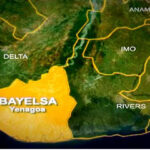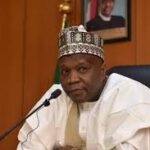The circumstances of the on-going minimum wage negotiations and the associated two day strike by organised labour, suggest the need for a paradigm shift in national productivity considerations in the country’s employment terrain. Following a stalemate in the negotiations between government and organized labour, in respect of fostering a new national minimum wage, the latter launched an indefinite strike action which took effect on Monday June 3, 2024, but was suspended on its second day even as it had wreaked considerable dislocation to the already prostrate Nigerian economy.
Its suspension can be ascribed to a welcome balance of concern among the disparate interests represented by the negotiators, namely the federal government on one side, and organized labour on the other side. This is even as the tell-tale signs were clear that both the administration and the entire country would hardly survive the unprecedented scale of socio-economic turbulence, that would trail the strike, given the present state of the economy, especially the overhang of poverty on it.
In practical terms the strike came at a time of deep seated poverty and hunger on the streets of Nigeria – from Lagos to Maiduguri and Sokoto to Calabar. In a typical scenario, a sum of N10,000.00 which is the monthly take-home pay for some workers in Nigeria, remained inadequate to provide a standard meal for a typical Nigerian family of 6 persons, in a country where the current national minimum wage is N30,000.00. In the same vein, transportation fares were out of the roof with most Nigerians trekking long distances on foot. As if to add insult to injury the administration of Bola Tinubu, imposed a new regime of multi-purpose taxes under different guises, which deepened the pauperisation of the masses.
In essence, both the government and organized labour were parties were bargaining from positions that were underpinned by poverty induced weakness. For instance, organised labour who clamoured for a new national minimum wage based its stand on the state of the economy whereby the average Nigerian worker remained unable to earn enough to sustain reasonable living due to out-of-reach prices of basic commodities. Meanwhile, the government itself was notionally contending with sustainability of any agreement reached with the organized labour as traditionally, remunerations for workers remain upward sticky, and hardly go down once settled. This is one of the conditions which make employers wary of offering employees wage bargains that may not be sustained in the future.
- Minimum wage: Civil Servants To Govs: Cut Your Salaries To Pay Us
- 70k minimum wage can’t take any Nigerian family home – Rep Chinda
In the prevailing situation the common factor between the two parties remains the debilitating state of poverty in the country which is not surprising, even as it needs to be addressed with respect to the circumstances of the minimum wage considerations. For while the topical issue is the new minimum wage, its actualization depends solely and wholly on the emergence of a Nigeria with reduced poverty burden, through a completely different productivity paradigm, without which the new minimum wage will remain an untenable pipe dream.
Hence, with respect to the imminence of a new national minimum wage the concern now remains how prepared the country is for it. In the same context is how it shall be adopted and implemented across the country by the federal, states and local governments as well as the private sector.
Meanwhile, it is instructive that in the course of the ongoing negotiations, President Bola Tinubu had called for financial implications rather late in the day. Would it imply that all along the negotiations were proceeding without empirical evidence of the implications of the negotiations at any stage? For, come to think of it. While in the course of the negotiations organised labour had come to town with explicit, empirical justification for their cause, the government side could only push out less than transparent arguments in a manner that is symptomatic of the grossly questionable tendencies in the country’s fiscal terrain.
The foregoing notwithstanding, it remains imperative that the focus now shifts to moving the country towards a new regime of accelerated increase in productivity. This consideration has always remained most relevant in every season of minimum wage negotiations in Nigeria, as whatever figure that had been adopted, hardly enjoyed nationwide implementation. Even the current amount of N30,000.00 is yet to be implemented by several states and local governments in the country. It therefore implies that even the new one may also face similar challenge of implementation by employers in both public and private sectors.
Put succinctly, the spirited negotiations are yet to be matched by equally robust policy realignments by the government with respect to improving the country’s productivity regime. This is an anomaly that raises questions over whether the country is not going back to business of continued groveling in poverty and waiting for the next economic crisis.
The moot point here is that the call for a new minimum wage is not for the pedestrian purpose of sharing public largesse to a select few citizens under any guise. Rather it is for the provision of improved lives for Nigerian workers in order to boost productivity and launch the country on a new pedestal of economic fulfillment.
In a world where there is no free lunch, the earlier the government braces up for launching the country into such a paradigm shift with respect to enhanced productivity, the better. Given the relatively jumbo scale of the envisaged new minimum wage, nothing short of a revolutionary up-grade in national productivity, will suffice, before we return to another cycle of fresh, wage-related haggling.

 Join Daily Trust WhatsApp Community For Quick Access To News and Happenings Around You.
Join Daily Trust WhatsApp Community For Quick Access To News and Happenings Around You.


